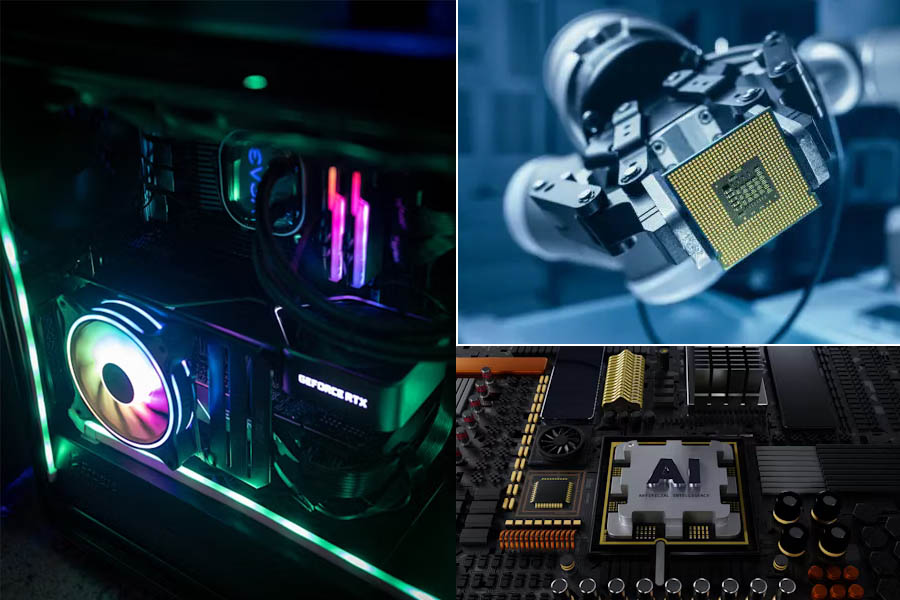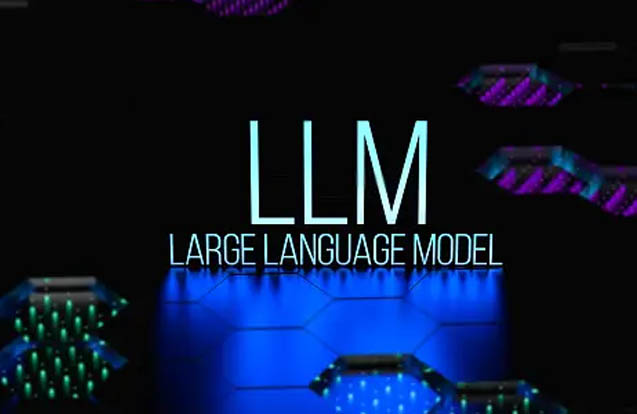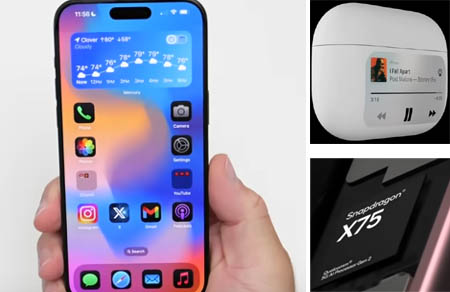
As artificial intelligence (AI) continues to revolutionize industries, the race to dominate AI chip design has become one of the most significant battlegrounds in the tech sector. Leading the charge is Nvidia, a company now recognized as the third-most valuable in the United States, following Microsoft and Apple. Known for pioneering the development of GPUs (Graphics Processing Units), Nvidia's technology has become essential for the computational demands of AI workloads, solidifying its 80% control of the AI chip market.
However, Nvidia's dominance is being challenged by upstarts like Groq, a startup founded by former Google engineer Jonathan Ross. Groq has raised nearly a billion dollars in venture capital to develop an alternative AI chip architecture that promises to disrupt Nvidia's long-standing supremacy. With a focus on speed and efficiency, Groq's chips are designed to outperform traditional GPUs, especially in areas like text generation and inference—a critical component of AI applications.
The Key Players: Nvidia and Groq
Nvidia's rise to power in the AI sector has been largely due to its innovative GPU technology, which excels in AI model training. The company's GPUs are particularly well-suited for large-scale, data-intensive tasks, such as training complex deep learning models that drive advancements in autonomous driving, natural language processing (NLP), and computer vision.
Groq, on the other hand, has taken a different approach. By focusing on building chips that excel in inference (the execution phase of AI models, where real-world applications come into play), Groq aims to provide faster, more cost-effective solutions. In a recent interview, Jonathan Ross highlighted that Groq’s chips are up to 18 times faster than Nvidia’s traditional GPUs when handling certain tasks. This kind of speed is crucial as AI applications continue to expand beyond research and into real-time industrial and commercial uses, such as autonomous driving, robotics, and real-time language processing.
One of Groq's key selling points is its ability to provide lower power consumption and reduced costs by using older chip technology (14 nanometer) while still outperforming Nvidia's cutting-edge 4nm technology. This combination of speed, efficiency, and cost-effectiveness could position Groq as a serious contender in the rapidly growing AI market.
Saudi Arabia’s AI Ambitions: The Next Frontier
The growing competition between Nvidia and Groq isn't just about technology—it’s also about geopolitics and global expansion. One of Groq's recent moves to challenge Nvidia's dominance is its partnership with Saudi Aramco, the world’s largest oil producer. Saudi Arabia is positioning itself as a future AI hub, with plans to build vast data centers in the desert capable of reaching half the world’s population. These data centers will rely on advanced AI chips, and Groq has signed a deal to deploy 20,000 chips in Saudi Arabia by the end of the year, with plans to scale up to 200,000 chips by next year.
This deal puts Groq in direct competition with Nvidia, which deployed 500,000 GPUs in Saudi Arabia last year and aims to increase that number to 2 million in 2024. The partnership between Groq and Saudi Aramco represents a strategic alignment as both entities look to carve out a space in the AI landscape. Saudi Arabia’s ability to provide the financial resources and energy necessary to power the data centers gives Groq a significant advantage in its quest to scale operations and chip production.
This partnership also highlights the growing importance of energy-efficient AI. Data centers consume enormous amounts of power, and as the world moves towards more AI-driven applications, energy consumption will become a significant concern. Groq's ability to offer faster chips with lower power consumption could play a crucial role in these future digital factories.
Global Geopolitics: The Chip Wars Escalate
The AI chip battle is not just about technology and market share—it’s also heavily influenced by geopolitics. Nvidia, Groq, and other chipmakers must navigate a complex global landscape dominated by tensions between the United States and China. With Nvidia relying on Taiwan’s TSMC for chip manufacturing, and Groq choosing Samsung in South Korea as its fab partner, the rivalry has broader implications for global trade, security, and technological supremacy.
In the interview, Ross emphasized Groq’s decision to steer clear of the Chinese market, citing the challenges faced by tech companies like Google in operating within China’s restrictive regulatory environment. Instead, Groq has focused on markets like Saudi Arabia and the United States, where it sees opportunities for growth without the geopolitical hurdles posed by China. This strategic positioning may prove advantageous as the U.S. government continues to scrutinize companies working with China, as seen with Microsoft's divestment from G42, a UAE-based AI firm tied to Chinese investors.
The Road Ahead
As AI continues to evolve, the battle for dominance in chip technology is set to intensify. Nvidia, with its massive market share and upcoming Blackwell platform, remains a formidable player, promising chips that are 25 times more energy-efficient than previous models. But Groq, with its innovative approach to AI chip design, strong partnerships, and rapid developer adoption, poses a credible challenge. The next few years will likely see the AI chip market splinter into specialized niches, with companies like Groq focusing on specific applications like inference and low-power solutions, while Nvidia continues to dominate the broader market of AI training and high-performance computing. Whoever can scale their technology the fastest, with the lowest energy footprint, may ultimately win the race. In this high-stakes game of technological innovation, speed, efficiency, and geopolitical strategy will determine who emerges as the leader in the AI chip wars.
This evolving story is shaping the future of AI. Both Nvidia and Groq are pushing the boundaries, but the race for AI chip dominance has only just begun.
#AIHardware #NvidiaVsGroq #AIChips #TechBattle #ArtificialIntelligence #MachineLearning #Semiconductors #AIInnovation #TechNews #FutureOfAI #AIRevolution #ChipTechnology
Thank you for reading: globalpostheadline.com





